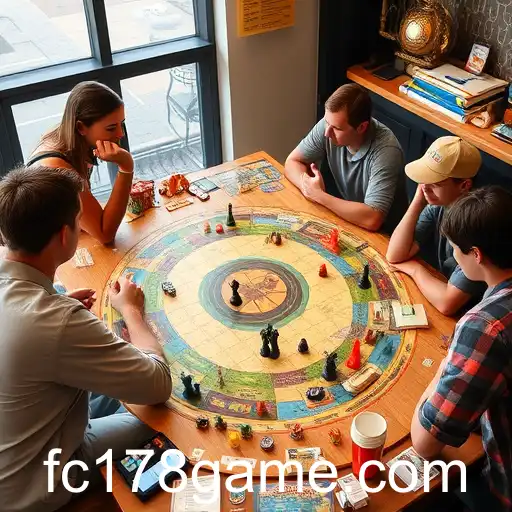In recent years, there has been a resurgence in the popularity of board games, a trend that might seem contradictory in the era of digital entertainment. The board game category, often categorized under keywords such as 'fc178' on various platforms, has intrigued families, friends, and enthusiasts across the globe. While video games and online gaming have taken the world by storm with their high-definition graphics and interactive experiences, traditional board games provide a unique blend of social interaction, strategic thinking, and nostalgia that many find irreplaceable.
One reason for the enduring appeal of board games is their ability to bring people together. In our increasingly digital world, face-to-face human interaction has become a precious commodity. Board games foster a sense of community and togetherness, offering a shared experience that digital games cannot replicate. Whether it’s a competitive game of Monopoly or a cooperative strategy in Pandemic, board games have the power to create lasting memories in a way that often transcends the allure of screens.
Moreover, board games are incredibly diverse in their themes and mechanics. There are games for every age group, interest, and skill level, making them accessible to a wide audience. From the educational value of chess and Go, which have been renowned for their strategic complexity, to the casual fun of games like Catan and Ticket to Ride, the depth and breadth of board games ensure there is something for everyone. This has led to a renaissance in board game design, with modern creators pushing the boundaries of what tabletop gaming can achieve.
Another aspect contributing to the popularity of board games is their tactile nature. In a world dominated by virtual experiences, the physical interaction and authenticity of handling game pieces, rolling dice, and moving around a game board are sensory pleasures that digital methods cannot fully simulate. It can also be a refreshing change of pace from screen-based activities, providing an analog counterpart to digital fatigue.
Board games also offer a break from constant connectivity. Unlike many smartphone apps and online games that are designed to keep users engaged as long as possible, board games have a finite sense of completion. They encourage players to disconnect from the online world and immerse themselves in the task at hand, providing a mental retreat and a renewed focus on personal interaction.
With numerous board game cafés emerging in urban areas and an increasing presence in mainstream retail stores, board games are solidifying their place as a cultural staple. Events like International Tabletop Day celebrate this form of gaming, further reinforcing its relevance and appeal.
As we navigate an increasingly digital landscape, board games remind us of the enduring joy of traditional pastimes. Their ability to adapt and flourish amidst modern entertainment forms speaks to their timeless appeal, ensuring that they remain a beloved activity for generations to come.

Exploring why board games continue to flourish as a popular pastime amidst the rise of digital entertainment.




